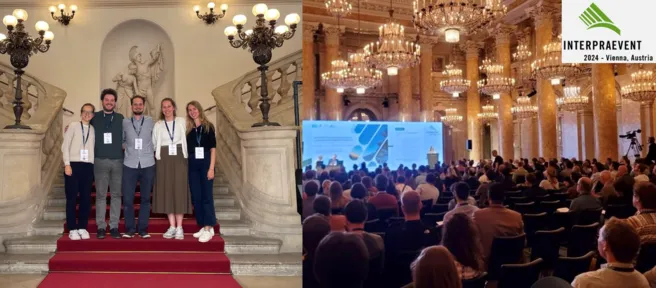Global warming has a profound impact on the frequency and severity of natural hazards globally. This effect is particularly noticeable in the Alps, requiring new strategies for prevention and mitigation. The pressing issue of "Natural hazards in a changing climate" was the main focus at this week's Interpraevent conference held at the Hofburg in Vienna, where more than 500 experts from around the world gathered to discuss, "How to manage risks under global warming?".
Our research team contributed with two oral presentations and three poster presentations on subjects including permafrost, rock slope failures, rockfall observations and debris flow events. You can check out the conference proceedings for detailed informations.
-
Calibrating a simple predictive erosive debris-flow model for the northern calcerous Alps: Verena Stammberger, Katharina Boie, and Michael Krautblatter
-
A concept for anticipating future alpine hazards and risks related to extreme precipitation events in the Garmisch-Partenkirchen region: Theresa Frimberger, Amelie Hoffmann, Daniel Straub, and Michael Krautblatter
-
Water flow in fractured bedrock permafrost: a potential hazard for high alpine infrastructure: Maike Offer, Samuel Weber, Markus Keuschnig, Ingo Hartmeyer, and Michael Krautblatter
-
Geomorphic hazard mitigation in touristically developed alpine gorges: a benchmark study in the Höllental gorge, Bavaria: Benjamin Jacobs, Verena Stammberger, and Michael Krautblatter
-
Real-time and multi-method monitoring of the imminen Hochvogel rock slope failure (DE/AT): Johannes Leinauer, Michael Dietze, Sibylle Knapp, Riccardo Scandroglio, Maximilian Jockel, and Michael Krautblatter
